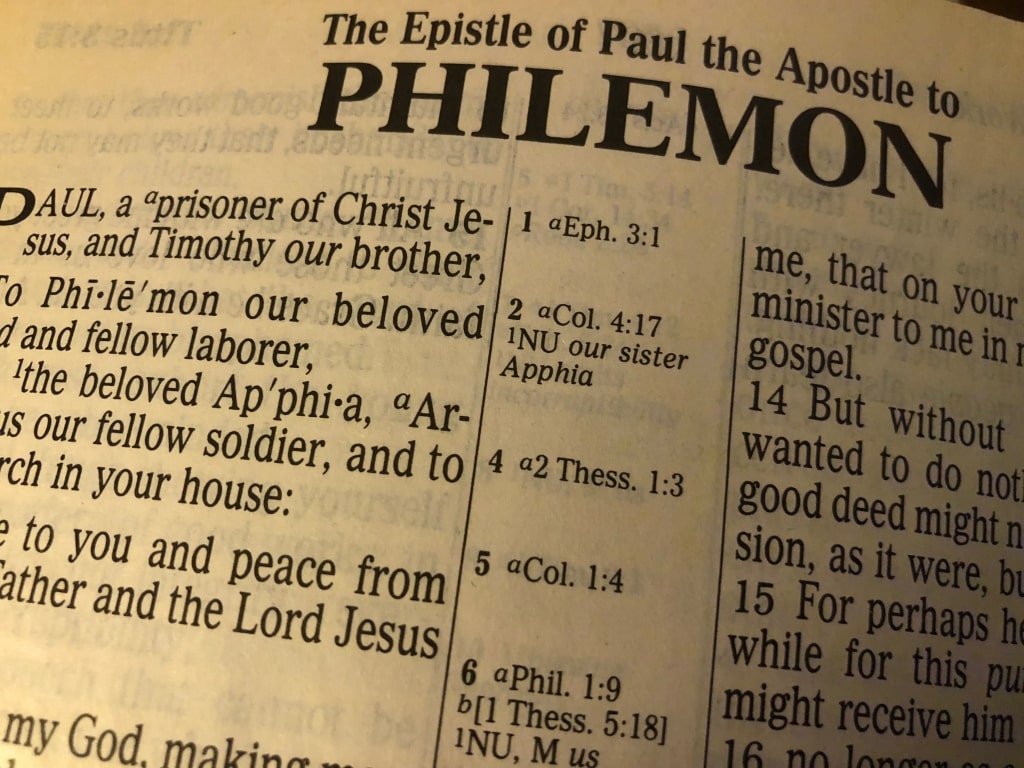
INTRODUCTION
The little personal letter that we know as Philemon is one of the great prison epistles (Ephesians, Philippians, Colossians, and Philemon). Even though he was in a Roman prison (Acts 28:16, 30–31), Paul continued to be more than a conqueror (Rom. 8:37) over the circumstances which put an end to his missionary travels.
The four epistles, which he wrote to the churches from prison, are the most elegant and sublime of all his letters. Here, in the little drama of Philemon, we see the great truths of the other three epistles brought to light and life in the rough and tumble Roman world. The runaway slave, Onesimus, led to faith in Christ by Paul, is sent back to his master, Philemon. How or why Onesimus fled, we are not told. And how in the bustling capitol city of Rome he came into contact with Paul in prison, is not explained. In this letter, we are told what matters. Paul is a picture of Christ, who came “to seek and to save that which was lost” (Luke 19:10). Onesimus is a picture of every sinner: willful, guilty, and in need of the grace and forgiveness of God. Philemon is the picture of Christian virtue—a man of faith, love, and generosity to others. He was terribly wronged and rightfully able to inflict vengeance, yet Paul, knowing his true character, urges him to forgive and receive back his runaway slave as a beloved brother in Christ.
All the great doctrines of Ephesians, Colossians, and Philippians come into play in this little story. There are lessons in this letter for every husband, every wife, every child. There are also spiritual standards set for every local church, in dealing with sin and shame, and their consequences. There are also sure guidelines that are profitable for every problem that plagues society, reminding us that the solution to all social ills is the message of the Gospel, and the life-transforming power of the Lord Jesus Christ.

